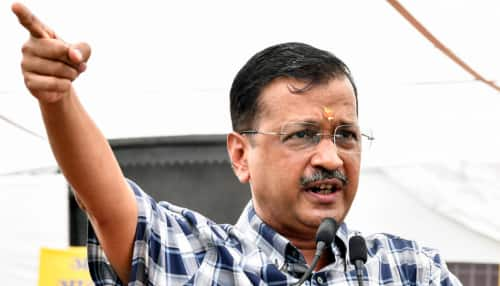
Table of Contents
Delhi CM Arvind Kejriwal announced his resignation after receiving bail, promising to return if the public supports him. He called for November elections.
In a bold move, Delhi Chief Minister Arvind Kejriwal announced his resignation just days after receiving bail from the Supreme Court. Addressing AAP party workers on Sunday, Kejriwal said he would step down from his position as CM but vowed to return to power if supported by the public in the upcoming elections. This decision has shaken the political landscape, with his critics questioning the motive behind the sudden Kejriwal resignation.
Kejriwal Resignation Announcement
Kejriwal resignation announcement came shortly after his release on bail in the Delhi excise policy case. In a passionate announcement, he said, “I am resigning from the CM post in two days. But I will not sit on the CM chair until I receive a verdict from the people. I will go to every street and house, seeking their mandate.”
Calls for November Elections
One of the key points in Kejriwal’s address was his demand for the Delhi Assembly elections to be held in November, alongside the Maharashtra elections. He emphasized that the elections, initially scheduled for February, should be brought forward to November. “Till elections are held, someone else from AAP will assume the CM role,” he said, adding that a meeting with party MLAs will be convened to decide the interim chief minister following the Kejriwal resignation.
Rejection of Sisodia for CM Role
Kejriwal was clear that his trusted ally, Manish Sisodia, would not take the CM position during this period. Instead, both leaders plan to engage directly with the public, leaving the decision on leadership entirely to the people. Kejriwal emphasized that “the AAP’s connection with the public is rock-solid,” asserting that no external forces can weaken their bond.
Why Is Kejriwal Resigning?
The Kejriwal resignation has sparked a wave of speculation. Some analysts believe this is a tactical move by the AAP chief to garner public sympathy and secure a stronger mandate in the upcoming elections. Others argue that Kejriwal’s decision is a direct challenge to his political opponents, particularly the BJP, signaling that his party is confident of victory even after months of legal scrutiny.
What Comes Next?
With the Kejriwal resignation in motion, AAP now faces the task of choosing a temporary chief minister until the elections are held. Kejriwal assured that a meeting of AAP MLAs would take place in the coming days to select the new leader, but many are already speculating about who might step in. Kejriwal’s bold strategy places significant pressure on both the party and its competitors ahead of the election season.
Conclusion
Arvind Kejriwal’s unexpected decision to resign adds a new dimension to Delhi’s political scenario. The Kejriwal resignation and his demand for early elections create a sense of urgency, forcing all political players to reassess their strategies ahead of the polls.